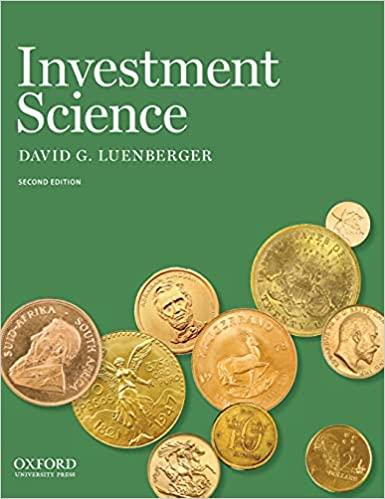A market is partially complete if for any $m$ in the market and any real function $f$,
Question:
A market is partially complete if for any $m$ in the market and any real function $f$, then $f(m)$ is also in the market. In addition, there are other assets that are not traded.
As an example, suppose the market is made up of three states and two assets, A and $\mathrm{B}$, as shown in the first four columns of the table. The market is not complete, since there are three states but only two assets. However, note that for each asset A or B, the value for state 2 is the same as for state 3.
It follows that any function of these two assets will also have this property, and a combination of $\mathrm{A}$ and $\mathrm{B}$ can duplicate the function.

The fifth column shows the components of $U^{\prime}\left(x^{*}\right)$, where $x^{*}$ is the optimal portfolio. Again the entries for states 2 and 3 are equal. We assume things are scaled, so the price of an asset $x$ in the market is $P_{x}=\mathrm{E}\left[U^{\prime}\left(x^{*}\right) x\right]$. The vector of $U^{\prime}\left(x^{*}\right)$ is unique since it can price all assets in the market.
The asset $d=(1,2,3)$ is not in the marketed space. We evaluate its price as $\mathrm{E}\left[\mathrm{U}^{\prime}\left(x^{*}\right) d\right]=\frac{1}{4} u_{1}+\frac{1}{2} 2 u_{2}+\frac{1}{4} 3 u_{2}$. Assuming the prices of $\mathrm{A}$ and of $\mathrm{B}$ are each $\$ 1.00$, find the zero-level price of $d$, and argue that it is universal.
Step by Step Answer:






